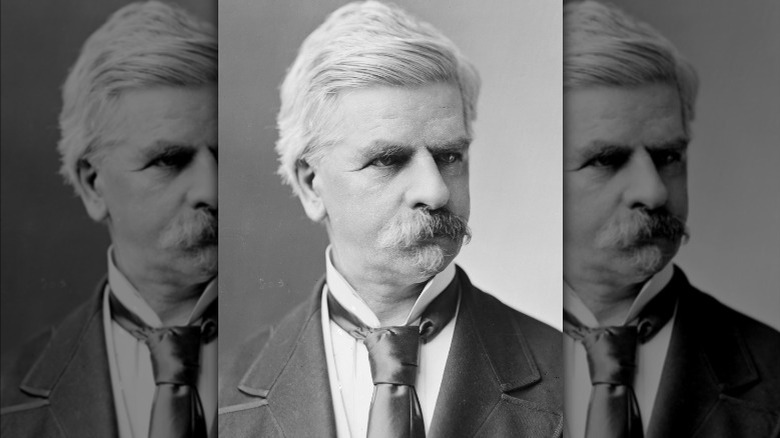The 1856 Speaker Of The House Vote Was The Longest In History
Following the 2022 mid-term elections in the United States, Republicans re-took control of the House of Representatives, giving them a razor-thin majority — 222 to 213, as Politico reports. At the beginning of every Congress, a Speaker of the House (of Representatives) is elected. As a matter of course, it is generally to be expected that a representative from the majority party will get the job, since, ideally anyway, their candidate should be able to get a majority of votes. However, the 118th Congress has gotten off to a rocky start, as USA Today reports, with the majority party failing to get a Speaker of the House elected. To make a long story short, most House Republicans support Kevin McCarthy for the job, but a small minority — as many as 20 or so — have been supporting a candidate that is further to the right: Representative Byron Donalds of Florida. As of noon Eastern Time on January 5, 2023, McCarthy has failed to get a majority vote after two days and six ballots — a situation that CNN calls "farcical."
Actually, the 2023 debacle has nothing on a race for Speaker of the House a century and a half earlier. As Slate reports, back in 1856, it took the House two months and 133 votes to elect a Speaker.
Chaos in the 1856 House
Back in 1856, a singular issue dominated what went on in Washington and, in a larger sense, among the electorate that sent people there to govern. It hardly requires explaining, but that issue was slavery — more specifically, the expansion of slavery into the West. Then there was the fact that the two-party system, as it exists today, didn't exist at the time, resulting in candidates from multiple parties and from factions within larger parties — such as the Know Nothings, a faction within the Republican Party that Nathaniel Banks (above) hailed from — all seeking a seat at the table (via Slate).
As the House of Representatives website reports, when the 34th Congress convened in December 1855, no fewer than 21 men were in the mix to be elected Speaker (by comparison, McCarthy faced two challengers: the Democrats' Hakeem Jeffries, and the aforementioned Donalds). "Broadly speaking, the House was left with a fractured Democratic Party, a large bloc of Know Nothings, and an amorphous Opposition Party working against the administration of President Franklin Pierce," notes a companion report from the House of Representatives website.
Ballot After Ballot
With no party having anything resembling a majority of representatives in the House, it was unlikely from the get-go that the matter of electing a Speaker would be quick and easy. It was not. As the House of Representatives website explains, the body cast four unsuccessful votes for Speaker on its first day in business. It held five the next day, six the next, and so on. The House would hold 84 votes for Speaker in December alone. The weeks dragged on, with vote after vote and no winner. Eventually, things got so bad that the rules were changed, requiring only a plurality vote for Speaker instead of a majority vote. After 133 votes were conducted and after two months had passed, Nathaniel Banks was given the job.
The vote was significant in that it solidified the Republican Party as a force in American politics; to this day, the party is, of course, still active. As for Banks, his election, obviously, did not result in the pro-slavery and anti-slavery factions within Congress coming to an agreement, and it would be a decade and a Civil War later before the matter was finally put to rest. Banks himself would fight for the Union in that war, according to American Battlefield Trust.


